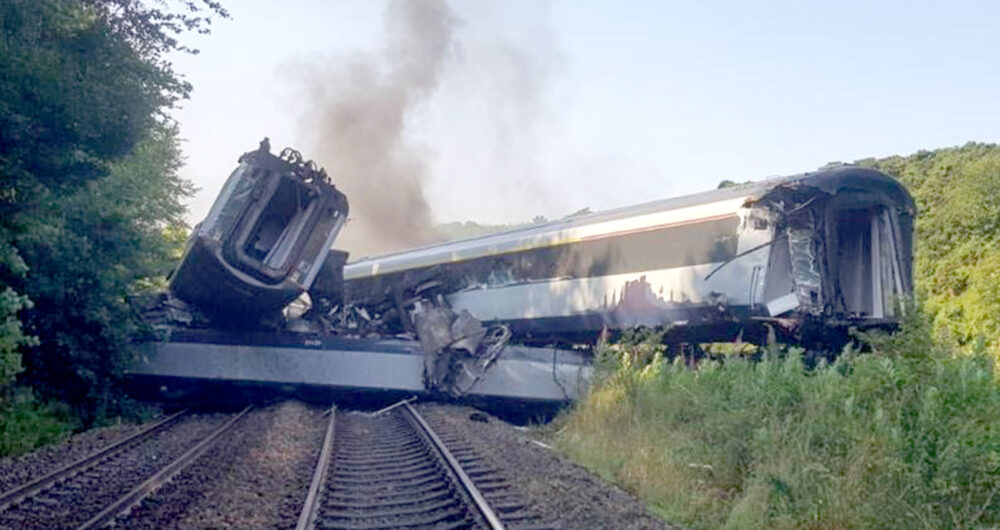Three people, including the driver, have died after a passenger train derailed in Aberdeenshire, according to the BBC.
The train conductor was also among those killed in the incident near Stonehaven, according to the RMT union.
Six people have been taken to hospital, although their injuries are not believed to be serious.
It is thought the train hit a landslide after heavy rain and thunderstorms which caused flooding and travel disruption across Scotland.
A major incident was declared and about 30 emergency service vehicles were called to the scene.
It involved the 06:38 ScotRail service from Aberdeen to Glasgow Queen Street.
British Transport Police said the driver’s family had been informed and were being supported by specially-trained liaison officers.
Ch Supt Eddie Wylie said it was believed that all passengers had been accounted for.
He added: “Once the area has been made safe then a full and thorough search will be conducted, which is likely to take some time.
“I know many people will understandably have questions and we will be working closely alongside the Rail Accident Investigation Branch and the Office of Rail and Road to establish the full circumstances of how the train came to derail.”
The RMT union said that confirmation of the three deaths, including one of its conductor members, was “the most dreadful news”.
Senior assistant general secretary Mick Lynch added the union’s thoughts “were with the families, colleagues and friends of those who have lost their lives in this tragedy.”
An analysis by transport correspondent Tom Burridge says ”
Early indications are that the heavy rain could have been the main factor in causing today’s crash in Aberdeenshire.
One rail industry source says the 06:38 service from Aberdeen to Glasgow was initially halted because of flooding on the line.
The driver apparently contacted control to ask permission to switch tracks.
It’s believed the train reversed and switched to clearer tracks and then continued on its route to Glasgow.
Then it is thought the train hit a landslide and derailed.
However, this initial, unconfirmed version of events should now be closely examined by the UK’s Rail Accident Investigation Branch.
Its job is to establish all the facts.
The train’s computer systems should show key indicators like the speed it was travelling at when it left the track.
In recent years incidents like this on the UK’s railways have become incredibly rare. The last major derailment was in 2007 in Cumbria”.
The most recent multiple fatalities on the UK’s railways were in South Wales in 2019, when two railway workers died after being struck by a Great Western train near Port Talbot. They were working without a lookout.




